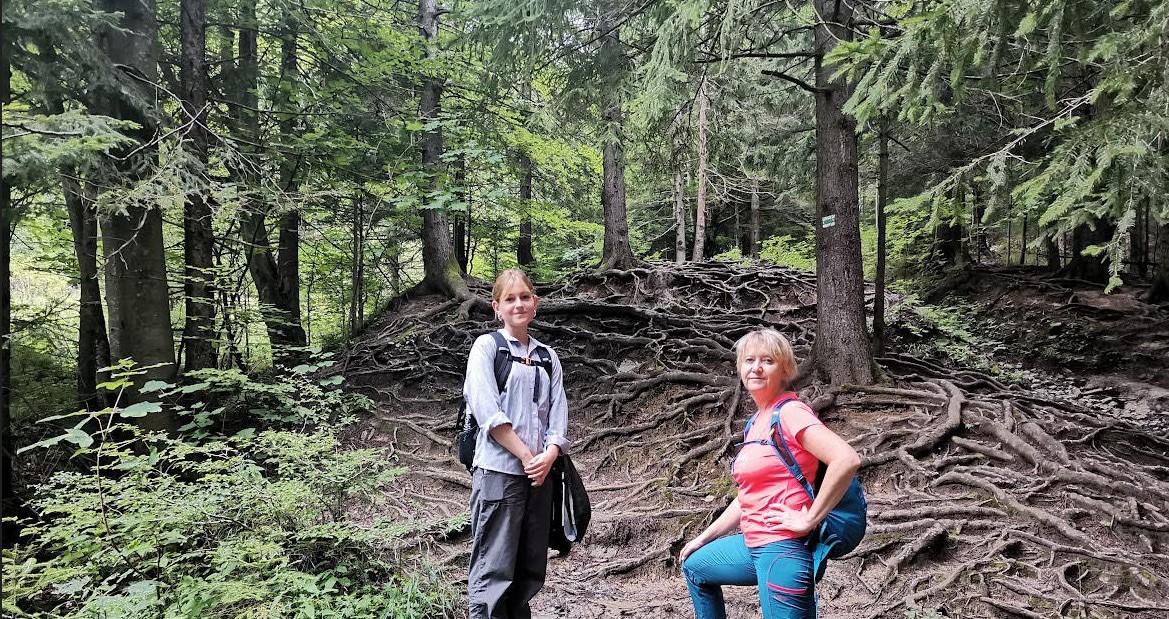A team of researchers from the University of Žilina and park rangers from the Malá Fatra National Park recently conducted a field expedition to the Veľký Rozsutec mountain. They were joined by a Slovak student studying zoology at the University of Bristol, who is currently working as a summer intern with the CEEweb for Biodiversity HUMANITA project partner. Together, they conducted photographic documentation of soil erosion occurring on and around the tourist trails. This erosion is caused by increased tourist activities combined with a high frequency of extreme weather events, leading to significant degradation of the trails. This degradation often prompts visitors to create unofficial shortcuts, which exacerbates the problem. By capturing photographic evidence, the team aims to provide a comprehensive assessment of the current state of the tourist trails in the area and develop better management strategies to prevent further erosion. Beyond their primary focus on soil erosion, the team also collected geological samples from recent landslides and rock falls. These natural events have become more common following severe storms, and studying these samples will provide insights into the underlying causes and potential preventive measures. For the intern, this fieldwork experience was not only educational but also deeply enriching. It offered a firsthand look at the multifaceted nature of conservation efforts within the national park. The collaborative efforts of the team highlight the importance of interdisciplinary approaches in addressing environmental issues. By combining expertise from academia, practical knowledge from park rangers, and fresh perspectives from young students, the project exemplifies how diverse skill sets can come together to tackle complex ecological challenges in the region.
Manage Cookie Consent
To provide the best experiences, we use technologies like cookies to store and/or access device information. Consenting to these technologies will allow us to process data such as browsing behavior or unique IDs on this site. Not consenting or withdrawing consent, may adversely affect certain features and functions.
Functional Always active
The technical storage or access is strictly necessary for the legitimate purpose of enabling the use of a specific service explicitly requested by the subscriber or user, or for the sole purpose of carrying out the transmission of a communication over an electronic communications network.
Preferences
The technical storage or access is necessary for the legitimate purpose of storing preferences that are not requested by the subscriber or user.
Statistics
The technical storage or access that is used exclusively for statistical purposes.
The technical storage or access that is used exclusively for anonymous statistical purposes. Without a subpoena, voluntary compliance on the part of your Internet Service Provider, or additional records from a third party, information stored or retrieved for this purpose alone cannot usually be used to identify you.
Marketing
The technical storage or access is required to create user profiles to send advertising, or to track the user on a website or across several websites for similar marketing purposes.
